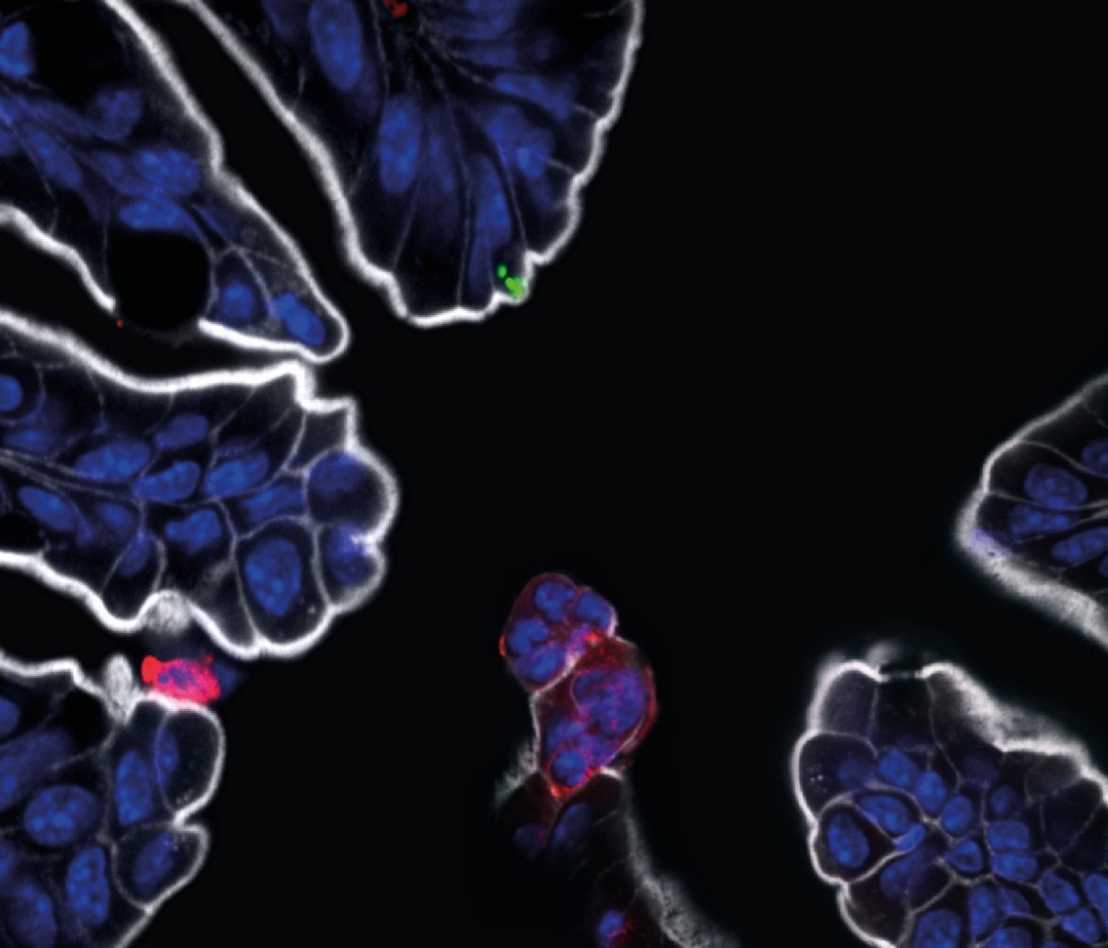Unveiling the love-hate relationship between Salmonella and the gut microbiota
Salmonella causes diarrhea to get rid of the gut microbiota and thrive in the gut. Recent work in PloS Biology by the Hardt group with the Vorholt & Sunagawa groups reveals that this strategy relies on a balance between disease severity caused by Salmonella and the diversity of the gut microbiota.

The gut pathogen Salmonella uses an unorthodox mechanism to thrive in the gut, relying on triggering intestinal disease (diarrhea) to suppress the gut microbiota and favour its own growth. This is only possible through a series of virulence factors that activate host`s immune system. However, expressing these factors slow down the growth of Salmonella, which results in a selective pressure for the loss of these virulence factors over time through mutation. This observation poses an interesting question about Salmonella’s evolution: how does Salmonella retain its ability to cause disease over time if there is a selective pressure against keeping it during infection? In the recent article published in PloS Biology ETH researchers teamed up to tackle this question. The team’s multidisciplinary approach reveals that while Salmonella relies on suppressing the microbiota to grow efficiently, suppressing the microbiota too far results in the very selective pressure that leads to the loss of Salmonella’s ability to trigger disease. The team concludes that for Salmonella to retain its disease-causing ability over time, it requires an intermediate level of disruption of the microbiota. This also suggests that certain microbiota members may unintentionally keep Salmonella as the disease-causing pathogen it is.
Many other gut pathogens like Clostridium difficile or Vibrio cholerae utilize a similar strategy to infect us. Therefore, these finding may be of broad relevance for gut infection biologists and shed light on the evolution of other pathogens that rely on exploiting the host via disease.
Link to the paper in external page "PloS Biology".